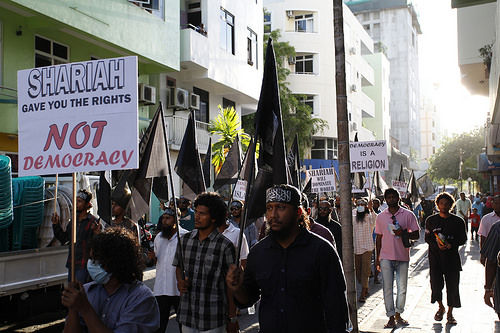Apostasy, foreign fighters and religious freedom in the Maldives: a policy paper
The Islamic affairs ministry has published a paper about issues related to religious freedom, mocking religion, going to war in the name of religion, committing murder and acts of war in the name of religion.

15 Apr 2018, 09:00
Earlier this week the Maldives’ Ministry of Islamic Affairs published a paper to strengthen legal frameworks and highlight policy gaps around apostasy, religious freedom and foreign fighters. Below is a translation:
Introduction
This is a paper to set out the policy for how state institutions should act in cases related to religious freedom, mocking religion, going to war, and committing assault and acts of war in the name of religion.
Purpose
Become a member
Get full access to our archive and personalise your experience.
Already a member?
Discussion
No comments yet. Be the first to share your thoughts!
No comments yet. Be the first to join the conversation!
Join the Conversation
Sign in to share your thoughts under an alias and take part in the discussion. Independent journalism thrives on open, respectful debate — your voice matters.




